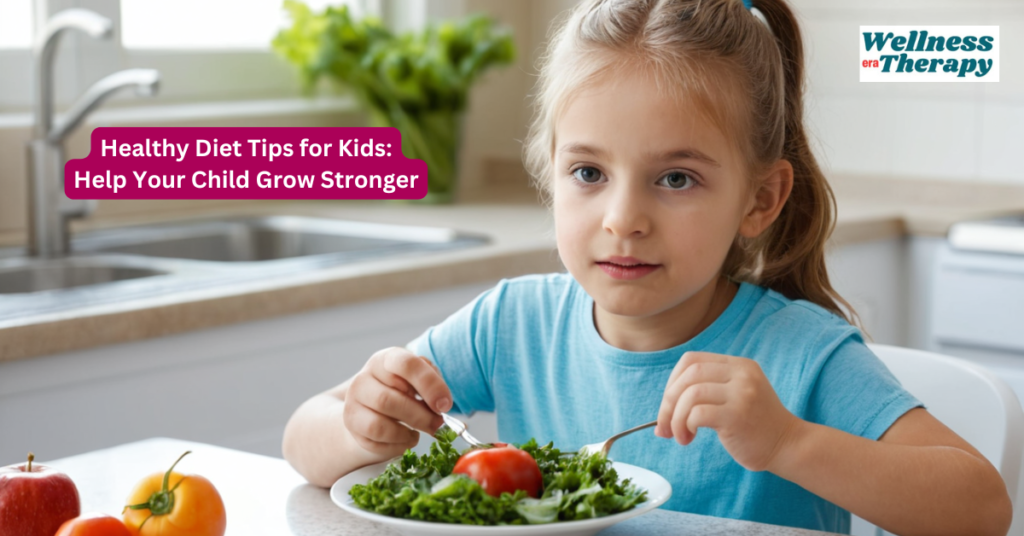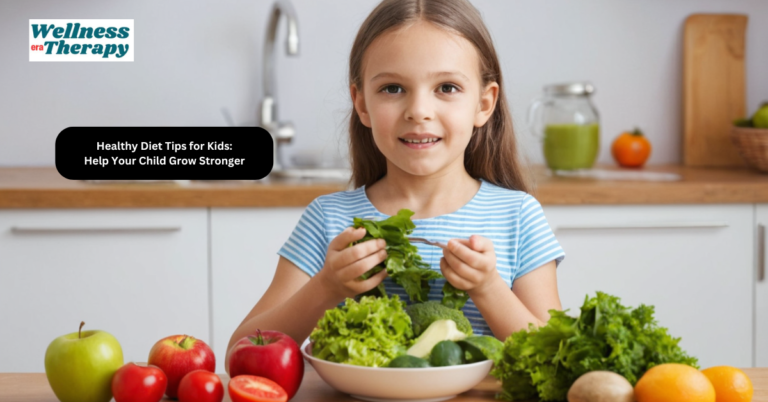Ensuring your child has a healthy diet is essential for their growth, development, and long-term health. Good nutrition not only helps kids stay active and energetic but also builds a strong immune system. As parents or guardians, understanding how to provide balanced meals is crucial. In this guide, we’ll walk you through effective strategies to nurture your child’s health with the right nutrition. Let’s dive into practical and science-backed diet tips to help your little one grow stronger every day!
The Importance of a Balanced Diet for Kids
Children need a variety of nutrients to grow and thrive. A balanced diet provides essential vitamins, minerals, carbohydrates, proteins, fats, and fiber. These nutrients boost immunity, support brain development, strengthen bones, and maintain overall energy levels. As parents, our role is to ensure we are feeding them foods that promote well-being while establishing healthy eating habits early on.

Essential Components of a Healthy Diet for Kids
- Fruits and Vegetables
- Offer colorful fruits and veggies like carrots, berries, spinach, and apples.
- Encourage eating whole fruits instead of juices to get more fiber.
- Add vegetables to their favorite dishes like pasta or make smoothies.
- Whole Grains
- Replace refined grains with whole grains such as brown rice, whole-wheat bread, or oatmeal.
- These provide essential fiber and help maintain steady energy levels.
- Protein Sources
- Lean meats, fish, eggs, dairy, beans, and nuts are excellent options.
- Protein supports muscle growth and helps repair body tissues.
- Healthy Fats
- Include nuts, seeds, avocados, and olive oil for healthy fat intake.
- Avoid trans fats found in processed foods and opt for natural fats instead.
- Dairy Products
- Calcium-rich foods like milk, cheese, and yogurt are crucial for bone strength.
- For lactose-intolerant children, try fortified almond or soy milk.
Practical Tips to Encourage Healthy Eating
- Be a Role Model
- Children often mimic their parents. Eat healthy foods together as a family.
- Make meal times enjoyable and stress-free to encourage better eating habits.
- Make Meals Fun and Interactive
- Use cookie cutters to create fun shapes with fruits and sandwiches.
- Let your kids help in meal prep; they’re more likely to eat what they helped create.
- Limit Sugary Snacks and Beverages
- Avoid stocking sugary snacks and sodas in the house.
- Offer healthier alternatives like nuts, yogurt, or homemade fruit popsicles.
- Stay Consistent with Meal Times
- Regular meal times can improve digestion and reduce unhealthy snacking.
- Include three balanced meals and two healthy snacks every day.
- Hydrate with Water
- Encourage drinking plenty of water to stay hydrated.
- Limit fruit juices and sugary drinks, which are high in calories and sugar.
Healthy Snack Ideas for Kids
- Apple slices with peanut butter
- Homemade trail mix with nuts and dried fruit
- Yogurt with fresh fruit and a drizzle of honey
- Carrot sticks with hummus
- Whole-grain crackers with cheese
Meal Plan Example for a Day
- Breakfast: Oatmeal with banana slices and a glass of milk
- Snack: A handful of mixed nuts and fresh orange juice
- Lunch: Grilled chicken, quinoa, and mixed salad with olive oil
- Snack: Yogurt with blueberries
- Dinner: Baked salmon, steamed vegetables, and a side of mashed sweet potatoes
Tips for Picky Eaters
If your child is a picky eater, don’t lose hope. Gradually introduce new foods alongside familiar favorites. Presenting veggies in different forms, like blending spinach into a smoothie or making veggie-filled pasta sauce, can work wonders.
Encouraging a Positive Attitude Toward Food
- Avoid using food as a reward or punishment.
- Teach your children to listen to their bodies and eat when they’re hungry.
- Discuss the benefits of healthy foods in a way they can understand, like saying, “Carrots help you see better in the dark!”
Conclusion
Helping your child develop healthy eating habits doesn’t happen overnight. Stay patient, consistent, and encouraging. Remember, every healthy choice you make for your child contributes to their overall well-being and sets a foundation for a vibrant life. Start small, be creative, and enjoy the journey of nourishing your child.


